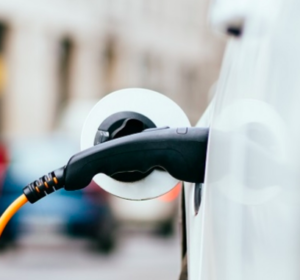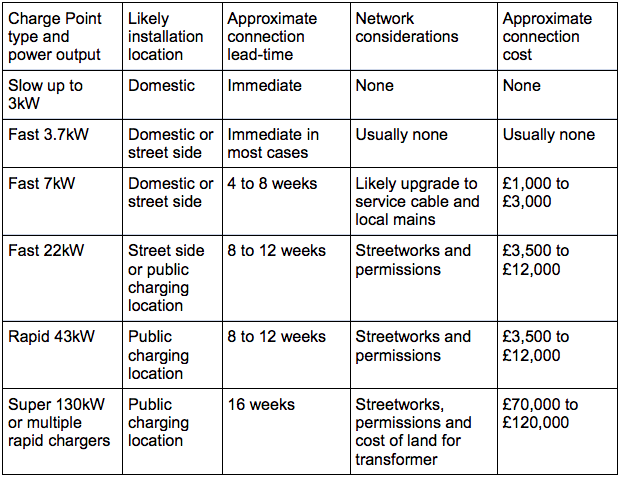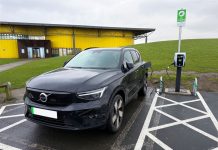 England’s electric vehicle charging infrastructure looks set for significant investment as the Department for Transport confirmed part-funding of grid connections for new high-powered chargers.
England’s electric vehicle charging infrastructure looks set for significant investment as the Department for Transport confirmed part-funding of grid connections for new high-powered chargers.
Its Rapid Charging Fund aims to have at least six high powered chargers serving each of England’s motorway service station by 2023.
According to current growth rates, those chargers will be needed: Western Power Distribution is anticipating a 16-fold increase in EVs on its networks within the next three years.
By 2035, the department claims the scheme will part-finance installation of as many as 6,000 rapid and ultra-rapid power points – between 150kW and 350kW beside motorways and major UK roads.
Foreshadowed in the March budget as part of Rishi Sunak’s £500 million investment in e-mobility infrastructure, the fund will focus on hard-to-connect sites, or where grid capacity is constrained.
To qualify, new public points must charge all EV brands, operate across providers’ different billing platforms, and deliver at least 99 per cent uptime, backed by 24/7 technical support.

EV chargepoint operators will welcome the announcement. Network upgrades required for high powered chargers can be expensive.
Western Power Distribution, charges up to £120,000 to connect a 130kW ‘super’ charger, or multiple 43kW rapid chargers. Installing 350kW chargers, as DfT intends to part finance, will cost significantly more.
Dispelling range anxiety
Management of Britain’s strategic roads is devolved to national governments. As of January 2020 England’s highways were already served by 809 open-access rapid or ultra-rapid powered chargers, excluding Tesla Superchargers. The DfT calculates that already no EV owner is more than 25 miles from an open-access charge point.
The DfT has not disclosed sums for the new fund, but made clear developers and site operators will be expected to meet at least part of installation costs. Its Charging Infrastructure Investment Fund, announced in 2017, has recently raised a further £80m from private backers, with fund manager Zouk Capital suggesting it is on track to hit £400m.
Now all the UK needs is cars that can take high powered charging.
More details of the DfT Rapid Charging Fund here.
Standardisation is key
The UK’s EV charging network is currently highly fragmented, lacking standardisation and interoperability. Addressing that challenge is a key priority highlighted by the Office for Low Emissions Vehicles-appointed EV Taskforce.
While the taskforce has urged cross-market data sharing and interoperability by 2025, some operators are actively working on commercial partnerships to enable better cross network roaming.
This week power retailer Octopus Energy launched Electric Juice, offering EV owners a single bill, presenting charges from multiple charging providers.
Meanwhile Engenie offers pay as you go functionality across its rapid charging network – and is also negotiating further commercial arrangements with energy suppliers and charging network operators.
Related stories:
EV Taskforce: Create better incentives for smart charging and flexibility
Engenie hires McDonald’s global product director
Tesla applies for power generation licence in VPP play
DfT backs high powered chargers and open data to cut carbon
Co-ordinate smart charging or blow carbon budgets and risk new ‘super peak’
Eon: Smart approach to charging is critical
Business outline incentives needed to boost EV infrastructure
Kaluza: EVs can displace large scale battery storage
Calling all fleet operators: Free vehicle-to-grid charging infrastructure
Vehicle-to-grid study suggests £400 annual revenue per electric vehicle
Nissan: 2019 a “breakthrough year” for vehicle-to-grid
Electric vehicles: Define smart charging, urge DNOs
Vehicle-to-grid: Are we nearly there yet?
EV boom no sweat, says National Grid
Flexitricity chief: UK has enough spare power electrify every car on the road



